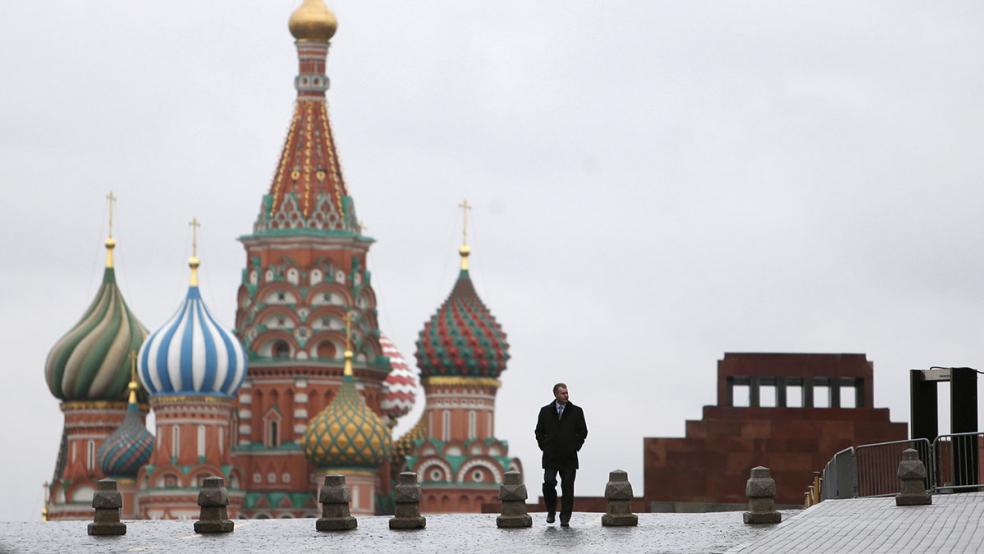On the campaign trail, one of Donald Trump’s key selling points the offer of simple solutions to complex problems. Immigration reform? Deport a few million people and build a wall. Done. Health care? Repeal Obamacare and replace it with something great. Done. International trade? Rewrite all the rules to make things better for the U.S. Done.
But now that he’s actually about to step into the Oval Office, the Trump Train is about to run into the brick wall of reality, and nowhere is that more obvious than in the relationship between the U.S. and Russia.
Trump spent much of the campaign praising Russia’s strongman/president Vladimir Putin, and publicly pining for a better relationship with the Kremlin. He was rewarded, U.S. intelligence agencies are now claiming, with a Russian effort to help him win the presidential election.
Developments this week, though, make it clear that relations with the Kremlin will be fraught, at best, for some time, regardless of Trump’s desires.
The Iran nuclear deal is the latest example. During the campaign, Trump relentlessly criticized the arrangement between world powers and the Islamic Republic that led to sanctions relief in exchange for greatly diminished capacity to develop nuclear weapons. Trump vowed to tear up the deal when he took office and to replace it with something much harsher.
Not so fast, the Kremlin said on Thursday.
Related: Why the Russia Hacking Scandal Could Cost Trump His Pick for Secretary of State
State-run news agency Interfax on Thursday reported that the Russian foreign ministry would view scrapping the Iran deal as “unforgivable.” The Kremlin also greeted the news that Congress had extended sanctions against Iran for ten years over the tepid opposition of President Obama, with disdain.
It would be unforgivable if a deal over Iran's nuclear program was lost, Russia's Foreign Ministry said on Thursday, the Interfax news agency reported.
The ministry also said it was disappointed by plans by the United States to extend its Iran Sanctions Act by 10 years, and hoped that it would not affect the agreement.
“Our attitude to the sanctions is a fundamental one. We believe this is of no use," said Mikhail Ulyanov, who directs the Russian Foreign Ministry’s non-proliferation and weapons control department.
Related: Trump Says No to Daily Redundant Intel Briefings Because He's a 'Smart Person'
"We do expect that no negative consequences will follow for the implementation of the Joint Comprehensive Action Plan for the Iranian nuclear program from the emerging aggravation in relations between Iran and the United States," Ulyanov said.
The Trump administration will also have to deal with the fallout from what intelligence officials are describing as a Kremlin-sponsored effort to interfere in the U.S. election. And far from being limited to shouting by Congressional Democrats with no real power, the push is going to come from within his own party.
On Wednesday South Carolina Sen. Lindsey Graham, one of the GOP’s leading voices on foreign policy, appeared on CNN and made the case for aggressive action against Russia in response.
“I don’t know what their motive was, but here’s what happened: Most of the information that was hacked into was designed to hurt [Democratic presidential nominee Hillary] Clinton, not going after Trump. But it could be us the next time,” he said. “This is not a Republican/Democratic issue. I want to punish them for interfering in our elections, trying to destabilize the entire world -- Democratic movements throughout the world -- and if you don’t, the Chinese and the Iranians are going to see this as weakness.”
Related: House Intel Chief Sets up Showdown Over Allegation Russia Helped Trump
His goal, Graham said “is to put on President Trump’s desk crippling sanctions” against Russia.
“They need to pay a price, and every Republican needs to understand that if we don’t stand together as a nation, we will be next.”
The issue became even more volatile late Wednesday with a report from NBC News that cited two unnamed intelligence officials who claimed that U.S. officials now have a “high level of confidence” that Putin himself personally oversaw the hacking and release of damaging information.
Putin’s spokesperson, Dmitry Peskov, dismissed the claim as “amusing rubbish” in a discussion with reporters on Thursday.
Trump’s secretary of state nominee, Exxon Mobil CEO Rex Tillerson, is known to have a good personal relationship with Putin, but if he is confirmed, that will surely be tested by a president whose campaign promises, as well as his supposed allies in Congress, appear to place him on a collision course with Moscow.





